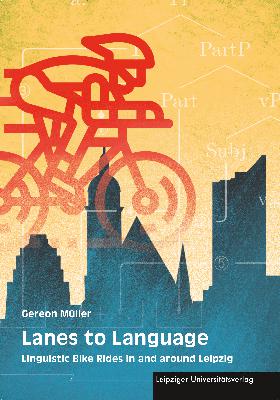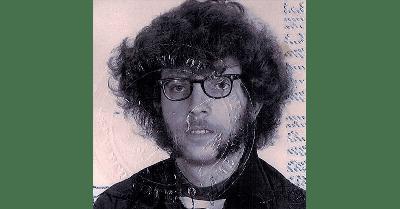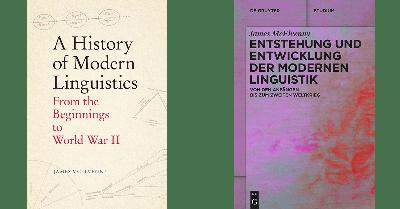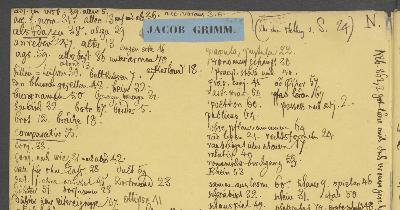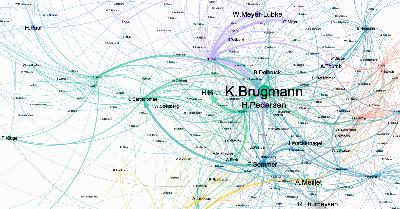Podcast episode 41: Chris Knight on Chomsky, science and politics
Description
In this interview, we talk to Chris Knight about Chomsky, pure science and the US military-industrial complex.
<figure class="wp-block-audio"></figure>
Download | Spotify | Apple Podcasts | YouTube
References for Episode 41
Radical Anthropology Group. YouTube channel | Vimeo channel
Allot, Nicholas, Chris Knight and Neil Smith. 2019. The Responsibility of Intellectuals; Reflections by Noam Chomsky and Others after 50 years, with commentaries by Noam Chomsky. London: UCL Press. Open access
Chomsky, Noam. 2016. ‘Chomsky responds to Chris Knight’s book, Decoding Chomsky’ Libcom
Chomsky, Noam, and Chris Knight. 2019. ‘Chomsky’s response to Chris Knight’s chapter in the new Responsibility of Intellectuals book’. Libcom
Knight, Chris. 2016. ‘John Deutch – Chomsky’s friend in the Pentagon and the CIA’. Libcom
Knight, Chris. 2016. Decoding Chomsky: Science and Revolutionary Politics. Newhaven: Yale University Press Google Books
Knight, Chris. 2023. ‘The Two Chomskys: The US military’s greatest enemy worked in an institution saturated with military funding. How did it shape his thought?’ Aeon
Newmeyer, Frederick J. 1988. The Politics of Linguistics. Chicago: University of Chicago Press.
Transcript by Luca Dinu
JMc: Hi, I’m James McElvenny, and you’re listening to the History and Philosophy of the Language Sciences podcast, online at hiphilangsci.net. [00:18 ] There you can find links and references to all the literature we discuss. [00:22 ] Today we’re joined by Chris Knight, who is a senior research fellow in anthropology at University College London and a long-standing political activist. [00:33 ] These two strands of his work and striving come together in the Radical Anthropology Group, which Chris co-founded. [00:41 ] Among the group’s activities are a regular series of talks and lectures, which can be watched online on the group’s Vimeo channel. [00:49 ] The link is available on the podcast page. [00:52 ]
In a recent update on the podcast, we promised that we’d look at the history of linguistics in the Cold War period, [00:59 ] with a focus on how the social and political climate of the time may have helped to shape the field of linguistics [01:06 ] — that is, how this climate influenced what linguists took an interest in, how they approached their subject matter, human language, [01:13 ] and how they marketed themselves and their work. [01:17 ] Chris has produced some very provocative work that explores the relationship of the research of Noam Chomsky, perhaps the key figure of linguistics in this period, [01:27 ] to the U.S. military-industrial complex of the Cold War. [01:31 ] Chris has written about this most extensively in his 2016 book Decoding Chomsky, [01:37 ] but also in a number of articles that are referenced on the podcast page. [01:41 ] The great conundrum Chris seeks to resolve in these texts is how Chomsky could reconcile the fact that his research was paid for largely by the U.S. military [01:51 ] with his activism in opposition to the Vietnam War and in support of other left-wing causes. [01:58 ] So Chris, could you outline your views for us? [02:01 ] What was the relationship of Chomsky’s linguistic research at MIT to the U.S. military-industrial complex, [02:09 ] and what effect did this have on Chomsky’s approach to studying language? [02:15 ]
CK: Well, Chomsky was initially employed at MIT rather than, say, a more posh place such as Harvard because, being Jewish — and, as Chomsky put it, the anti-Semitism around being as thick as soup — it was easier for him to get a job at MIT, [02:33 ] and his initial employment was to work on a kind of craze of the time, actually: machine translation. [02:39 ] Chomsky, from the outset, realized that for machine translation to work, you’d have to have computers far more powerful with far greater memory than anything that was around at the time, [02:51 ] and he realized that, really, you just need a vast number of sentences, and you kind of average them out and work out what the probable meaning of it is. [03:00 ] I say “you,” “you” being a computer here. [03:04 ] And he wasn’t interested at all, and what was much more exciting to him, but also very exciting to the U.S. military, [03:12 ] was the idea that just possibly the human mind is itself a digital computer of some sort, [03:19 ] and that underlying all the world’s different languages was this simple code. [03:25 ] So Warren Weaver had — this great fixer and founder of all sorts of things going on in U.S. military, industrial plus intellectual relationships — argued that possibly… [03:37 ] He actually used the analogy of the Tower of Babel, that underneath all the differences, if you delve right down to the very basis of language, you’d find a simple kind of underlying code, [03:47 ] which Chomsky before long called universal grammar. [03:51 ] And why that was exciting to the military would mean that you could just possibly ask the generals during, say, a nuclear war to kind of talk to their missiles. [04:03 ] I say talk, probably they meant type on a keyboard to their missiles, [04:07 ] but you could talk in any of the world’s languages, and the missiles would kind of get it [04:11 ] because installed inside the missile or inside the bomber or other form of technology would be this kind of black box containing the principles of all the world’s different languages. [04:23 ] So that was an extraordinarily exciting and ambitious idea, and when Chomsky was invited to work on it, he more or less said, [04:31 ] “Well, I’ll work on the principle. I’ll work on the science. I won’t work on any practical applications. I won’t try to operationalize what I’m doing. [04:41 ] Anyone else wants to do that, that’s up to them.” [04:44 ] But because this is intellectually exciting and thrilling, in fact, that underlying all the world’s languages is a simple universal grammar, he promised to work on that. [04:54 ]
JMc: But isn’t it the case that Chomsky’s approach is rather formalist and that he’s interested in the structures of languages, [05:02 ] not necessarily in any semantic aspects? [05:05 ] So even if he could describe an underlying universal grammar of all languages, it would actually not be something that could be used in practice for the purposes of communication or for instructing machines. [05:20 ]
CK: Well, exactly. And actually, in order to clarify this, Chomsky was very anxious to draw a very sharp distinction between language’s social use — social conversation, social communication — and language as formal structure, [05:39 ] and in fact, sometimes argued that possibly the very word “language” was misleading. [05:43 ] His interest was, if you like, grammar. [05:46 ] And yes, I mean, that’s absolutely right, but the point I think I would make is that there was a cost to this, [05:55 ] because in the end, in order to draw the sharpest possible distinction between language as use and language as grammar, [06:05 ] he argued that language is essentially not communicative, that essentially language is the language of thought [06:12 ] and that the first human on the planet ever to, if you like, [06:16 ] speak in his own words was talking to itself. [06:20 ] So in order to absolutely ensure that he kept his politics apart from his work for the military, he stripped language of everything social. [06:31 ] And you can sort of




